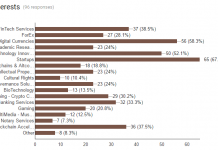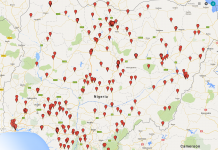WISeKey International Holding Ltd, a cybersecurity company, has announced the release of a special edition of its Digital Identification and cyber-resilience app, WISeID, integrating blockchain technology. WISeID acts as a dual factor authentication technology that sits on top of a blockchain. Each WISeID node gets a copy of the WISeID blockchain and gets downloaded automatically upon joining the WISeID network.
At the heart of this platform is the OISTE-WISeKey Cryptographic Root of Trust which has been used since 1999 by over 2.6 billion desktop, browsers, mobile devices, SSL certificates and Internet of Things’ devices.
OISTE and WISeKey, in cooperation with the Clinton Global Initiative, started this project back in 2007 with the objective to issue 1 billion identities to connectivity-poor people, as one-fifth of the world’s population ‒ 1.5 billion people - have no proper legal identification, and 50 million children are born every year without a birth certificate or legal identity. This means that these people are off the radar for vital economic services, including such as education and healthcare.
This new WISeID blockchain platform integrates technologies related to Digital Identity and blockchain which are in line with the United Nation’s Sustainable Development Goals which aims to provide every person on the planet with a solid and tamper-proof digital identity based on common, interoperable standards by 2030. As a first step, the United Nation is seeking to develop scalable identity systems by 2020. This initiative was launched at the inaugural ‘ID2020 Summit ‒ Harnessing Digital Identity for the Global Community’ held at the United Nations headquarters in New York on May 20, 2016.
The WISeID blockchain operates with the WISeID Kaspersky Lab Security cyber-resilience edition that uses the digital identification to lock personal data such as account usernames and passwords, credit card numbers and access PINs into a secure personal data organizer, creating accountable identities for online activity while the data itself remains protected in a secure cloud vault.
Mobile security threats are increasing in number and sophistication, with hackers looking for ways to hijack mobiles for bitcoin mining or to trick mobile users into giving releasing their personal identity and bank account information. Even though mobile operating systems provide app developers with significant security features, hackers have still been able to exploit the massive installed base of Android and iOS devices, using many different infection vectors to place malware. The WISeID Kaspersky Mobile Security SDK includes a robust solution for protecting mobile phones against security threats. The SDK’s inclusion in the app delivers advanced security features like web & network protection, device protection and risk detection to smartphones.
Among other features, WISeID keeps passwords in an encrypted vault, generates hard-to-crack passwords, and safely synchronizes data between computers and devices on multiple platforms, using secure cloud storage. The vault can be unlocked only with the user’s master password and/or defined pattern, with additional protection provided through facial recognition authentication.








